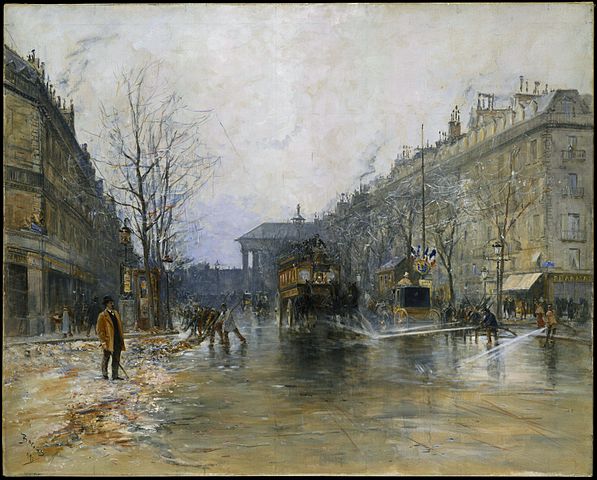In 1972 the Belgian mathematician Edouard Zeckendorf established Zeckendorf’s theorem: that every positive integer can be represented as the sum of non-consecutive Fibonacci numbers in one and only one way.
In 1979 French poet Paul Braffort celebrated this with a series of 20 poems, My Hypertropes. Each of the 20 poems in the series is informed by the foregoing poems that make up its Zeckendorff sum. For example, the Zeckendorff representation of 12 is 8 + 3 + 1, so poem 12 in Braffort’s sequence shares some characters or images with each of these poems. This forced Braffort to build scenarios that would permit these relations as he wrote the poems.
Each of the numbers 1, 2, 3, 5, 8, and 13 is its own Zeckendorff representation, so Braffort related each of these to its two foregoing Fibonacci numbers (e.g., 8 = 3 + 5). This means that only the first poem, “The Preallable Explanation (or The Rhyme’s Reason),” is not influenced by any of the others. Here is that first poem, as translated by Amaranth Borsuk and Gabriela Jaurequi:
This is my work, this is my study,
like Jarry, Cyrano puffy,
to split hairs on Rimbaud
and on willies find booboos.
If it was fair or if it snowed
in Lhassa Emma Sophie Bo-
vary widow of slow carnac
gave herself to the god of wack.
Leibnitz, saying: “Verse …” What an ac-
tor for this superb “Vers …”. Oh “nach”!
He aims, Emma, the apoplexy
of those drunk on galaxy.
At the club of “spinach” kings (nay,
Bach never went there, Banach yea!)
Leibnitz — his graph ibo: not six
mus, three nus, one phi, bona xi —
haunts without profit Bonn: “Ach! Gee
if I were great Fibonacci!!! …”
Now, for example, Poem 12, “MODELS (for Petrovich’s Band),” is an alexandrine with two six-line stanzas. The Zeckendorff representation of 12 is 1 + 3 + 8, so in each stanza of Poem 12 the first line is influenced by Poem 1, the third by Poem 3, and the sixth by Poem 8, each drawing on specific lines in the source poem. The first line in the sixth couplet of Poem 1, “He aims, Emma, the apoplexy,” informs the first line of Poem 12, “For a sweet word from Emma: a word for model”; the second line of the sixth couplet from Poem 1, “of those drunk on galaxy,” informs the first line of the second stanza in Poem 12, “Our galaxies have already packed their valise”; the phrase “when I saw you / weave a letter to Elise” in Poem 3 becomes “they say from this time forth five letters to Elise” in Poem 12; and the couplet “And Muses who compose / They’re a troop they’re tropes” in Poem 8 becomes “Tragic tropes: Leonardo is Fibonacci.”
“Thus, Braffort’s collection of poems, My Hypertropes, has an internal structure provided by a mathematical theorem,” writes Robert Tubbs in Mathematics in Twentieth-Century Literature and Art (2014). “The structure does not entirely determine these poems, but it does provide connections between the poems that might not be there otherwise.”




